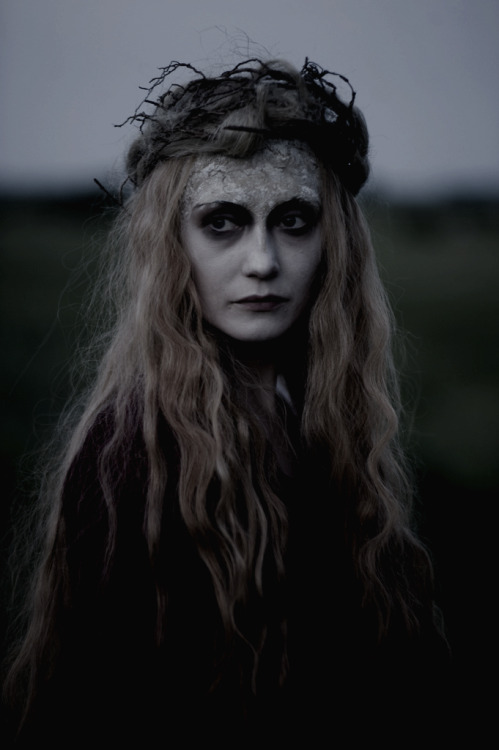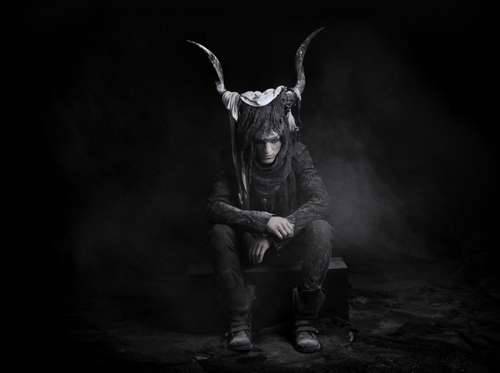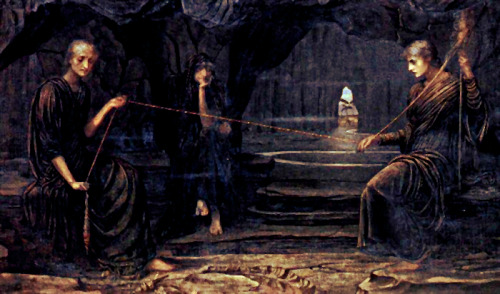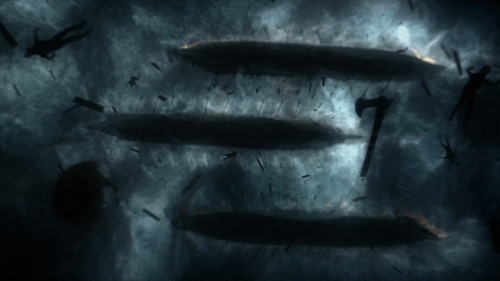#alternative forms of magic
On the origins of magic: how the wands came to be. (4/?)
From: Postcolonial resistance in the mythologies of the magical peoples of the South Asian subcontinent ed. Sunil P. Patil (1991).
Old magic. Old magic old magic old magic.
How could people forget?
How could people forget the magic that had helped raise the great stones, that had marked the stars that pyramids pointed to, that had sunk ancient cities and raised rivers from deserts?
How could they forget?
All too easily, the answer rang back, all too easily. They had forgotten how to live, breathe and drink magic. Had forgotten how the men of yore had lived without wands; how without those twigs the magic was channeled through movement and sway and song and sacrifice. How without those twigs the only barrier to the magic you could make was yourself, was your own mind, your own sacrifice. How without those twigs you could do anything when you had enough strength.
Magic was a muscle, the elders said. Practice with it and it shall grow, just as by lifting rocks and timber each day your muscles shall grow. But take one of those sticks, those little twigs and you are using a lever to do that work for you, you are letting yourself be weak when you could be so so so strong.
The young ones ignored them, pointed at them laughed at these elders stuck in their old ways with dreams of a great and ancient past but naught to show for those dreams, and argued that now they were old how could they sway and sing and sacrifice? Was it not better to do less for more? To conserve, waiting for a greater task, The Great Task? Why offer themselves up mind, body and soul to magic when in a moment, with a mere flick of a wrist, with a wand they could do the same thing just as well? And these elders could lament wands all they liked, but they had nothing to show for all their boasts of glory, could not with such precision, with such finesse accomplish the things these children could.
The elders’ faces were impassive.
The elders’ faces betrayed nothing.
So it went, for years and years, the children slowly outnumbering the elders, growing proud and mighty in their strength until the elders worried. Worried that in their pride the children would grow reckless, would forget that magic was no toy but a powerful force, one to be reckoned with - one that would demand its pay.
A great council they summoned, drawing magical folk from every corner of the uncivilized world and told them of their fears - of how they feared the children had forgotten the old magics of the world, had forgotten what it meant to channel power and force, what it meant to be responsible.
They fought. Father against son. Mother against daughter.
And late that night elders from every corner of the uncivilized corners of the world met in an old forest, untouched by time and human hands, still throbbing with the ancient magic of the world, deep and dark. There they breathed their old and ancient magic for the very last time, letting it seep through their veins, rich and heady and intoxicating. Then with calls foreign to all, they rose and bound their children.
You want wands? they asked the magic they worshipped and worked with, You want levers and magic getting weaker?
Then so be it.
They bound the magic and their children all at once, forever cursing those who took in hand the twigs they called wands, weapons, to be doomed to a life torn away from the old magics of the world. So it was that when a child used a wand, working wandless came to be a burden, a path fraught with great difficulty that few except the most dedicated would ever tread.
It is their punishment. The consequence of their folly.
When you see them, with their wands, remember the old magic, the magic that you breathe, drink and live. It is this magic in your veins, the magic of the civilized lands of the world. Dusty, old with time. Exercise it, children, use it, concentrate, feel it, let it flow through you, lest it be taken from you and lost forever.
I am disappointed, of course, that father never got to see this book. I think he would have quite enjoyed it. Would have found plenty of good use for it in his research.
Naturally, as you might imagine, the book is popular only among a few select academic circles in the wizarding world. Wands as punishment? Sacrilege! Though I suppose one ought to be thankful it did not receive the Myths of Magical Europe treatment. A.R.
(Submitted by essayofthoughts, with a few minor edits on my part.)
Post link

Those wizards without their sea-legs scoffed at our magic. They laughed at our “substandard” wands made from merpeople scales, shards of sea dragon teeth, or the hair from a hippocampus. They chuckled because we used wood from sunken ships and far off places, wood that Mr. Ollivander had never seen.
“Not up to scratch, those sailors’ wands. Not made by Ollivander!” rang in our ears each time we went to shore.
Have you ever tried to barter with a mermaid for her scales while struggling to resist her song?
Have you ever tried to fight a sea dragon off your ship as its tail wraps around the flimsy wood and starts to squeeze?
Have you ever even seen a hippocampus?
No, our wands were not made from valuable wand woods or expensive materials, but they were wands, all the same. They were powerful in different ways.
They channeled the fear of the drowned. The peace and freedom of the vast ocean. The violence of the Maelstrom. The cunning of the merpeople. The grace of the hippocampi. The magnificent destruction that characterizes the sea dragon.
But our wands were powerful not because they were wands, but because they were not all we used to cast our sea-spells and water-magic. Our wands were never meant to be the end-all of magic, but a crude expression of far older, far more elegant sea-spells and water-magic.
In the tar used to seal the planks of the vessel together we mixed drops of our blood. We learned that from the hot ports of Africa. Our ship never leaked.
On our three masts and figurehead were carved harsh and jagged runes that spoke of the harsh waters of the Arctic. My mast was hacked and chiseled by a descendent of Leif Eriksson himself. My masts never broke; the figurehead would spring to life and tear apart the ships we overtook if I gave the word.
My first mate learned to stitch sails from a woman who spun the threads from the foam of the sea itself, from the kami of the ocean. My sails needed no raising and lowering, no trimming; that was for amateurs and landcrawlers. No, my sails reacted to the slightest wind, moving of their own volition and taking me where I wished to go.
And whenever a storm would approach, the crew would circle around the mainmast and begin a chanting, stomping dance we learned from the First Peoples of the West Indies. Somehow, the waves were never quite high enough to cause us danger, and the winds never fought against my vessel, however the storm raged.
Those fools that passed for wizards did not know or care about our magic on the sea, but their vaunted Ollivander wands are worse than useless on the swells and the troughs. That’s land magic. There are far older magics in the world, magics that tap into the very fabrics of the deep earth and vast fathoms. They try to control the world around them with magic, but the world will not be controlled. Their magic is puny compared to the fury of the ocean.
Sail through a hurricane with one of your wands.
I have some new deckhands that need goodwands; the wood from your shattered hull would do nicely.
When it is you sailing against the vastness and power of Poseidon and Sedna and Mizuchi and Tangoroa and Njord all at once, you do what you must to survive.
The sea has no boundaries, no borders, and neither does our magic.
We ask we put to shore, wherever that may be, if there is some way to connect ourselves to the might of the sea and become one with the waves and winds. We seafarers learned long ago that to fight the sea is to drown. Our magic is from the sea, not from land. That, Mr. Rookwood, is how and why we survived.
- Captain Alanna Jones, famed wizarding pirate and great-granddaughter of Davy Jones
(Submitted by mastersamwiseofthefryingpan. Photo 1)
The Sacred Twenty Eight: The Noble and Most Ancient Houses of Nott and Rowle
Ergi, the Rowles called them
And sneered,
But the Notts only smiled
And wove on in silence.
They might be ergi,
but they were seiðmenn
And they would never be blót.
The common wizards and witches of Britain had their own version of a very muggle saying - out of the frying pan and into the fire. Theirs was a little… different. For it went like this:
Fleeing the Blacks
only to cross the Notts.
The Blacks were dangerous, but nine times out of ten you knew precisely where you stood with them - they wore their hearts on their sleeves. If you insulted them, you could rest assured they would curse you, probably using some obscure dark curse no one had heard of and things would be well. Mostly.
But if you crossed a Nott, you’d never know it. They merely smiled and continued as though nothing were wrong at all. Excessively well-bred, always courteous - haute ton. But once you had left, they would return home, still smiling, and take down an ancient distaff and spindle; magical objects passed down from generation to generation for each Nott versed in the magical art of Seiðr.
Magical Britain laughed at divination and called it a fuzzy art with no magical grounding, for charlatans and their ilk, and the Notts agreed with them. Crystal balls, tea leaves, reading sticks - amateurs. The future was what people made it, what a talented seiðmenn orseiðkonurcould make it. The future was whatever the Notts chose to weave on their tapestries. Each thread, carefully placed, turning thought into reality, fiction into non-fiction, lies into truth.
None knew this better than the Rowles. They had learnt firsthand, many centuries ago, that mocking the Notts - these students of Odin - came with a price. A blood price that might have been honor to those who paid it but was a blood price nonetheless.
The Rowles might have been warrior-shamans; berserkers invulnerable in battle; but the might of the sword or even crude magical power could not withstand the implacable weaving and reweaving of reality and fate that the Notts took part in. Theirs was deeper magic, darker magic, terrifying magic and when the Rowles and Notts came to England with the first of the Vikings to rule Scotland, they brought rumours of what the Notts could do to people when crossed and people fearedthem.Fearedthese mild mannered men and women who refused to let this new religion called Christianity and its sociopolitical order sway them; who failed to conform to the new order’s strict regimentation of gender and male and female occupations; who smiled when people spurned them and smiled even wider when their mockers were slowly ruined piece by piece.
So not a murmur was heard when Proserpina Nott, aged 16, took up the family seat in the Wizengamot in 1734 though she was the youngest of the Notts and had not yet finished her schooling. The Ministry kept mum when Tiresias Nott refused to use their curriculum when teaching divination and instead taught his pupils trance magic and weaving: the beginnings of Seiðr. Wizengamot members cast their eyes downwards when Isembardus Nott stood up to make speeches, lest he see the judgement in their eyes when he painted his face and persisted in wearing pompadour wigs in public (it was 1854). People turned the the other way when Cantankerus Nott, pureblood fanatic extraordinaire, put half his fortune into muggle stocks and bonds. And no one dared say a word when Charles Nott stood a little too close to Antinous Lestrange at Ministry press conferences.
No. Only the foolish with a death wish ever crossed the path of a Nott. For they would have their revenge, these children of Guðrún, protégés of Odin and their revenge would be cold, dark and terror-filled as the houses of Hel.
[Picture sources: Shadows on Parade by Nicol Vizioli, CALLE 20 by Jose Herrera, The Essence by Spencer Hansen, Norns Bruk, A Golden Thread by John Melhuish Strudwick, screencaps from Vikings and 1066: the Battle for Middle Earth]
Post link









